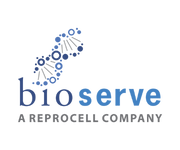
Personalized medicine in Breast Cancer: Personalization Starts with Screening
Incidences of Breast cancer (BC) are on rapid rise (by 39% over past two decades) making it the most common malignancy among Indian women. Epidemiology of breast cancer differs significantly in Indian women from Western population. Current trends point out that a higher proportion of the disease is occurring at a younger age in Indian women, as compared to the West. The survival rate of patients with breast cancer is poor in India as compared to Western countries due to earlier age at onset, late stage of disease at presentation, delayed initiation of management and scattered treatment. According to the World Cancer Report 2020, the most efficient intervention for BC control is early detection and rapid treatment. Precision medicine brings a ray of hope in this regard. Thanks to advances in genomic testing, care of women with breast cancer is being improved by tailoring the treatment according to the molecular characteristics of specific tumour.
Precision and personalisation begin with screening
In Western countries, the chances of survival of an individual woman with breast cancer is increasing because cancers are identified at an earlier and more curable stage, followed by usage of advances in treatment approaches. The personalisation of breast cancer treatment is indispensable in improving survival rates and this starts with screening. Precision medicine is an approach to diagnosis, treatment and prevention that considers the genetic makeup, and the genes or other markers present within the cancer cells. For example, women from families with a history of BC are at higher risk (60-70%) of developing BC themselves. Most of these cases are attributed to women who carry the BRCA1 or BRCA2 gene mutation which means that cells do not repair DNA as effectively as normal. This implies screening for BRCA mutations almost becomes a prerequisite for early intervention in women with a family history of breast (and ovarian) cancer.
How can genetic testing tailor personalised treatment in Breast Cancer?
The foundation of precision medicine is based on consideration of molecular characteristics of the individual patient’s tumour, when deciding on treatment. Therefore, to match therapy requirement or meet eligibility criteria, the patient must be screened for the biomarkers or biological factors specific for a particular tumour and this has been made possible through modern day genetic and genomic testing services. Some of the important markers and related therapies currently being practiced for BC management are summarised below.
Estrogen Receptor
Normal breast tissue responds to hormonal changes in a woman’s body. Some breast tumours express estrogen receptors and grow in response to their activation. When the tumor cells test positive for estrogen receptors, it’s called estrogen receptor-positive (ER-positive) breast cancer, which means that estrogen is fueling the growth of the cancer. We now know that growth of breast tumours that are ER-positive could be prevented or delayed by using anti-oestrogen drugs such as Tamoxifen and the aromatase inhibitors or endocrine therapy.
HER2 status
An aggressive subtype of breast cancer often has a gene abnormality which leads tumour cells to over-express the human epidermal growth factor receptor (HER2). If this status is identified, the patients become eligible for anti-HER2 drugs like Trastuzumab or Pertuzumab. However, some tumours show resistance to drugs directed against the HER2 receptor, and therefore biomarker somatic mutations within HER2 gene, which confer this resistance, should be detected. Thus, exploring HER2 somatic mutations in each patient could help individualize anti-HER2 therapies.
BRCA 1 and BRCA 2 gene mutations
Approximately 5% of patients with breast cancer carry germline mutations in BRCA 1 or BRCA 2 tumor suppressor genes, that function in DNA damage repair pathway. In 2018, the FDA approved the PARP inhibitors olaparib and talazoparib for treating patients with metastatic breast cancer (mBC) with deleterious germline mutations in BRCA 1/ 2 genes. OlympiA trial demonstrated improved progression-free and distant disease-free survival with adjuvant olaparib for gBRCAm carriers with HER2-negative high-risk early-stage breast cancer. Clinical trials demonstrated that, compared with chemotherapy, the PARP inhibitor resulted in a significant improvement in progression-free survival (PFS) and health-related quality of life and ~60% response rate within 6 months. These results led to regulatory approval and guideline recommendations to offer any patient with metastatic HER2-negative breast cancer the opportunity to have germline genetic testing if a PARP inhibitor would be used for treatment.
Among non-patients, women carrying pathogenic BRCA mutations, routine surveillance for breast cancer is recommended from 25 years of age and prophylactic salpingo-oophorectomy is recommended after 35 years or once childbearing is complete. Prophylactic oophorectomies and mastectomies have been shown to reduce cancer incidence compared with chemoprevention or surveillance.
Thus, screening for BRCA mutation status would not only help in treatment guidance for mBC patients but is an equally powerful tool to indicate early intervention for preventive management.
PIKC3A mutations
The PIK3CA pathway is one of the most frequently altered pathways in human cancers, especially in breast cancer. Approximately 40% of patients with advanced hormone receptor-positive breast cancer harbour a PIK3CA mutation. Food and Drug Administration (FDA) has approved a treatment called Alpelisib (Piqray) specifically for people with HR-positive and HER2-negative mBC with PIK3CA mutation. Candidates for a regimen with a phosphatidylinositol 3-kinase inhibitor and hormonal therapy should undergo testing for PIK3CA mutations to determine eligibility for Alpelisib plus fulvestrant.
Immunotherapy
Immunotherapy is the use of medicines to boost a person’s own immune system to recognize and destroy cancer cells more effectively. Candidates for immune checkpoint inhibitor therapy should undergo testing for expression of programmed cell death ligand-1 (PDL-1) in the tumor and immune cells to determine eligibility for treatment with pembrolizumab plus chemotherapy. Pembrolizumab is a checkpoint inhibitor that targets the PD-1/PD-L1 pathway; approved in combination with chemotherapy for patients with metastatic, PD-L1-positive triple-negative breast cancer (TNBC), including for treatment prior to and after surgery. This is also approved for subsets of patients with advanced breast cancer that has high microsatellite instability (MSI-H), DNA mismatch repair deficiency (dMMR), or high tumor mutational burden (TMB-H).
Benefits of personalized medicine depend on the participations of all stakeholders- patients, doctors and genetic testing service providers, all working together towards the common goal of harnessing scientific breakthroughs to improve patient care.
BIOSERVE offerings
Here is how we make your journey towards personalised treatment easier, faster, and affordable.
| Test | Details |
| BRCA Care | BRCA1 / 2 sequencing (germline) |
| BRCA Tumor care | BRCA1 / 2 sequencing (Somatic) |
| BRCA Sure | Combo (Germline+ Somatic) |
| BRCA MLPA | BRCA1 and 2 gene deletion/ duplication testing |
| BRCA Deep | BRCA1/2 sequencing (Germline) + BRCA MLPA |
| MSI Test | Microsatellite instability Analysis (13 markers analysed) |
| BRCA Extended | Covers SNVs/ Indels in 15 genes associated with hereditary breast and/or gynecologic cancers |
| Homologous Recombination Repair Genes panel (HRR) | Covers >20 HRR genes including BRCA1/2 |
| PIK3CA mutation Test | PIK3CA common mutations |
| HER2 Status | HER2 Amplifications (+ve/-ve) |
| Biomarker Focus Breast | HER status: for targeted anti-Her2 therapy. HER2 mutations: to identify resistance to anti HER2 therapy. PIK3CA mutations: E542K, E545K, H1047R/L for targeted PI3Kα-specific inhibitor therapy. BRCA 1/ 2 mutations: complete CDS for PARP inhibitor therapy. HRR gene mutations: complete CDS for PARP inhibitor therapy. BRCA 1/ 2 Deletion/duplication: for targeted therapy (in cases BRCA 1/ 2 mutation test is negative) |
References
-
Mehrotra R, Yadav K. Breast cancer in India: Present scenario and the challenges ahead. World J Clin Oncol 2022; 13(3): 209-218
-
Gaibar M, Beltrán L, Romero-Lorca A, Fernández-Santander A, Novillo A. Somatic Mutations in HER2 and Implications for Current Treatment Paradigms in HER2-Positive Breast Cancer. J Oncol. 2020;2020:6375956. Published 2020 Mar 7. doi:10.1155/2020/6375956
-
Smith, M. J., Gerber, D., Olsen, A., Khouri, O. R., Wang, Y., Liu, M., … Pothuri, B. (2021). Uptake and timing of risk-reducing salpingo-oophorectomy among patients with BRCA1 and BRCA2 mutations. American Journal of Obstetrics and Gynecology. doi:10.1016/j.ajog.2021.06.070
-
https://www.asco.org/practice-patients/guidelines/breast-cancer#/9676
Author
Dr. Bhawana Dubey
Dr. Bhawana Dubey is BioServe India’s Chief Scientific Officer.
